
Richard Hobert (born 1 December 1951, in Kalmar) is a Swedish scriptwriter and film director. [1]

Richard Hobert (born 1 December 1951, in Kalmar) is a Swedish scriptwriter and film director. [1]
This section possibly contains original research .(December 2014) |
Hobert studied political science, languages and film and theatre at the Lund University from 1970 to 1973. He debuted as a radio playwright in 1974. Hobert worked as a writer and assistant director up to his debut as a director in 1978. During the eighties, he wrote and directed several TV-films, among them the internationally awarded The Twelve Months of Summer, Age Unknown and The Fifteenth Chieftain.
His debut on the big screen in 1993, Spring of Joy, was the first film in a cycle of seven, called "The Seven Deadly Sins". The stories were focused on the same Swedish family, ranging from comedy to drama and a thriller. He wrote, directed and co-produced the project during the nineties. "Spring of Joy" was awarded "The Ingmar Bergman-Prize", Bergman" with Bergman's personal motivation: "A Masterpiece". "Spring of Joy" as well as the other films in the Cycle:"The Hands", "Autumn in Paradise", "Run for your life", "The Eye", "Where the Rainbow ends" and "The Birthday" received Scandinavian and international awards. In 2002, Everyone loves Alice was a major critics' and box office success. The film won the "Best European Film" award at The Hollywood Film Festival. "This powerful film is reminiscent in intensity and intimacy of Ingmar Bergman's gripping 1973 film Scenes From A Marriage" (Hollywood Reporter). His next film, Three Suns, a medieval love story, was considered a disappointment and was widely criticised. A year later, 2005, Hobert returned to the big screens with Harry's Daughters, starring Lena Endre and Amanda Ooms. The film, about the violent conflict between two sisters after the loss of a child, was generally received as a powerful comeback and praised as one of his best films ever. In the following years, Hobert wrote several theatre plays. He also directed one of them, Security, (USA: "Manhattan Security") at the Royal Dramatic Theatre in Stockholm.
In 2011 he once again returned to the cinema. He wrote and directed A One-Way to Antibes .The tragicomic drama, about a half-blind widower who learns that his children have conceived an elaborate plan to get their hands on his assets before he dies—and then does a counterattack—was a big critics' success and the actor Sven-Bertil Taube received a National Award for "Best Leading Male Actor" in January 2012. The film was also very successful in the theatres, running for seven months.
Hobert was married to actress Lena Endre from 2000–2012.

Ernst Ingmar Bergman was a Swedish film and theatre director and screenwriter. Widely considered one of the greatest and most influential film directors of all time, his films have been described as "profoundly personal meditations into the myriad struggles facing the psyche and the soul". Some of his most acclaimed works include The Seventh Seal (1957), Wild Strawberries (1957), Persona (1966) and Fanny and Alexander (1982), which were included in the 2012 edition of Sight & Sound's Greatest Films of All Time. Other notable works include Sawdust and Tinsel (1953), A Lesson in Love (1954), Smiles of a Summer Night (1955), The Virgin Spring (1960), Through a Glass Darkly (1961), Winter Light and The Silence, Shame (1968), Cries and Whispers (1972), Scenes from a Marriage (1973), and Autumn Sonata (1978). He was also ranked No. 8 on the magazine's 2002 "Greatest Directors of All Time" list.
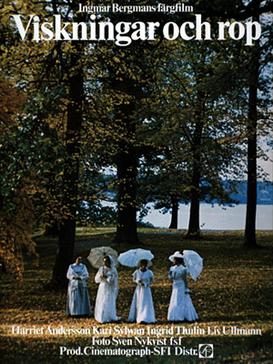
Cries and Whispers is a 1972 Swedish period drama film written and directed by Ingmar Bergman and starring Harriet Andersson, Kari Sylwan, Ingrid Thulin and Liv Ullmann. The film, set in a mansion at the end of the 19th century, is about three sisters and a servant who struggle with the terminal cancer of one of the sisters (Andersson). The servant (Sylwan) is close to her, while the other two sisters confront their emotional distance from each other.

Autumn Sonata is a 1978 drama film written and directed by Ingmar Bergman, and starring Ingrid Bergman, Liv Ullmann and Lena Nyman. Its plot follows a celebrated classical pianist and her neglected daughter who meet for the first time in years, and chronicles their painful discussions of how they have hurt each other. It was the only collaboration between Ingrid Bergman and Ingmar Bergman.
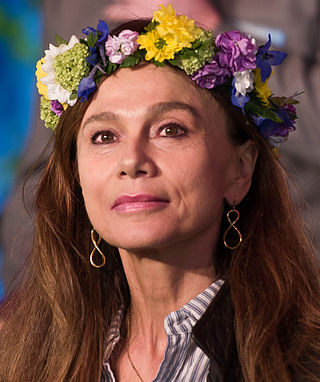
Lena Maria Jonna Olin is a Swedish actress. She has received nominations for an Academy Award, a Golden Globe Award, a BAFTA Award, and a Primetime Emmy Award.
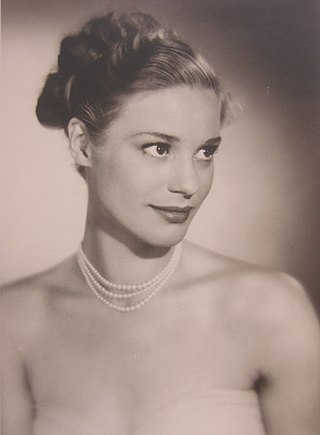
Ingrid Lilian Thulin was a Swedish actress and director who collaborated with filmmaker Ingmar Bergman. She was often cast as harrowing and desperate characters, and earned acclaim from both Swedish and international critics. She won the Cannes Film Festival Award for Best Actress for her performance in Brink of Life (1958) and the inaugural Guldbagge Award for Best Actress in a Leading Role for The Silence (1963), and was nominated for a Best Supporting Actress BAFTA for Cries and Whispers (1972).
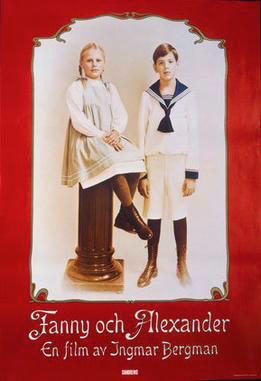
Fanny and Alexander is a 1982 period drama film written and directed by Ingmar Bergman. The plot focuses on two siblings and their large family in Uppsala, Sweden during the first decade of the twentieth century. Following the death of the children's father, their mother remarries a prominent bishop who becomes abusive towards Alexander for his vivid imagination.
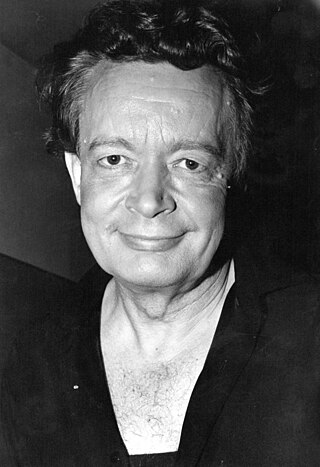
Ernst-Hugo Alfred Järegård was a Swedish actor.

Erland Josephson was a Swedish actor and author. He was best known by international audiences for his work in films directed by Ingmar Bergman, Andrei Tarkovsky and Theodoros Angelopoulos.

Sven Vilhem Nykvist was a Swedish cinematographer and filmmaker.

Pernilla August is a Swedish actress, director and screenwriter. Being one of Sweden's leading actresses and a longtime collaborator with director Ingmar Bergman, she won the Best Actress Award at the 1992 Cannes Film Festival for her role in his The Best Intentions. She is best known internationally for portraying Shmi Skywalker in Star Wars: Episode I – The Phantom Menace and Star Wars: Episode II – Attack of the Clones.

The Magic Flute is Ingmar Bergman's 1975 film version of Mozart's opera Die Zauberflöte. It was intended as a television production and was first shown on Swedish television on 1 January 1975, but was followed by a theatrical release later that year. The work is widely viewed as one of the most successful films of an opera ever made, and as an unusual item among the director's works. The film won the BAFTA TV Award for Best Foreign Television Programme in 1976 and was nominated for the Golden Globe for Best Foreign Language Film and the Academy Award for Best Costume Design.
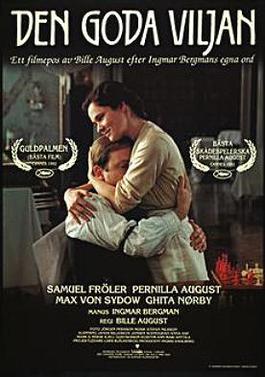
The Best Intentions is a 1991 Swedish television drama film directed by Bille August and written by Ingmar Bergman. It is semi-autobiographical, telling the story of the complex relationship between Bergman's parents, Erik Bergman and Karin Åkerblom, who are renamed Henrik and Anna in the film but retain their true surnames. The film documents the courtship and the difficult early years of their marriage, until the point when Anna becomes pregnant with their second son, who corresponds to Ingmar himself. Samuel Fröler and Pernilla August played Henrik and Anna, respectively.
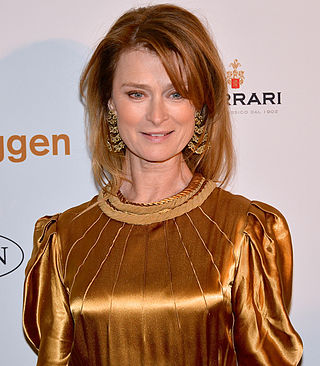
Lena Endre is a Swedish actress of film and television, primarily in the Swedish and Norwegian markets, known for her parts in the Liv Ullmann film Trolösa (2000), and the Millennium series of films, based on the Stieg Larsson books. Endre made her English-language debut in 2012, in Paul Thomas Anderson's movie The Master, starring Joaquin Phoenix and Philip Seymour Hoffman.
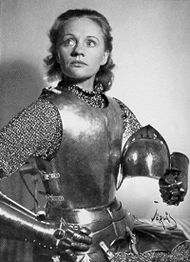
Gunn Wållgren (born Gunnel Margaret Haraldsdotter Wållgren; ; was a Swedish stage and film actress. She is best remembered for her role in Ingmar Bergman's film Fanny and Alexander.

Stig Olin, né Högberg was a Swedish actor, theatre director, songwriter and singer. He was the father of actress Lena Olin and singer Mats Olin (1947–2023). He was married to film actresses Britta Holmberg and Helena Kallenbäck.
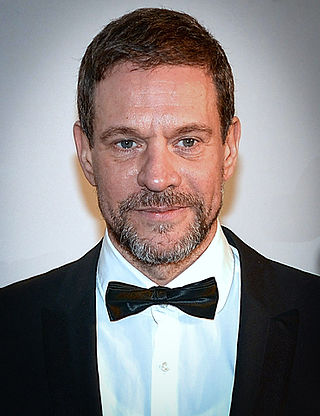
Sven Thomas Hanzon is a Swedish actor and stage actor at the Royal Dramatic Theatre in Stockholm and former footballer. He was born in 1962 in Stockholm, Sweden. He worked with Ingmar Bergman in both movies and on stage. He has two children with Swedish actress Lena Endre and is now married to Åsa Hultman and living in Stockholm.
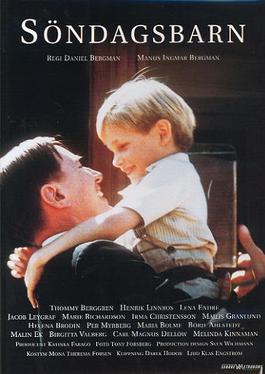
Sunday's Children is a 1992 Swedish drama film directed by Daniel Bergman and written by Ingmar Bergman. At the 28th Guldbagge Awards the film won the award for Best Cinematography and Thommy Berggren was nominated for Best Actor.
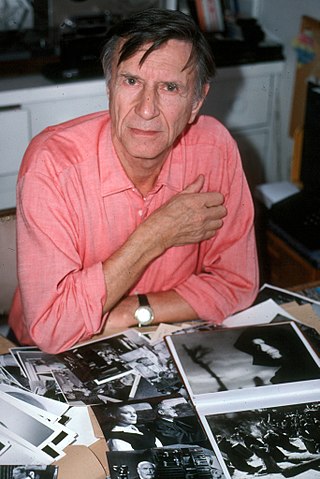
Gunnar Fischer was a Swedish cinematographer who worked with director Ingmar Bergman on several of the director's best-known films, including Smiles of a Summer Night (1955) and The Seventh Seal (1957). In addition to his career as cinematographer, Gunnar Fischer directed short films, wrote screenplays (1933–41) and published books for children.
The Ingmar Bergman Award was a Swedish film award, distributed between 1978 and 2007 by the Swedish Film Institute. It was instituted by legendary Swedish film director Ingmar Bergman, as a complement to the Guldbagge Awards. The jury consisted of Ingmar Bergman and the CEO of the Swedish Film Institute. The recipients were awarded a bronze plaque, depicting Bergman's face, and a sum of money. The award was first presented at the 14th Guldbagge Awards, and continued until Bergman's death in 2007.

Bergman: A Year in a Life, Swedish: Bergman - ett år, ett liv, is a 2018 Swedish-Norwegian documentary film directed by Jane Magnusson. Journeying through 1957, the year Ingmar Bergman released two of his most acclaimed features, made a TV film and directed four plays for theatre, Magnusson has amassed a wealth of archive and contemporary interviews, along with a selection of clips from his vast body of work. Film has its premiere on 71st Cannes Film Festival.